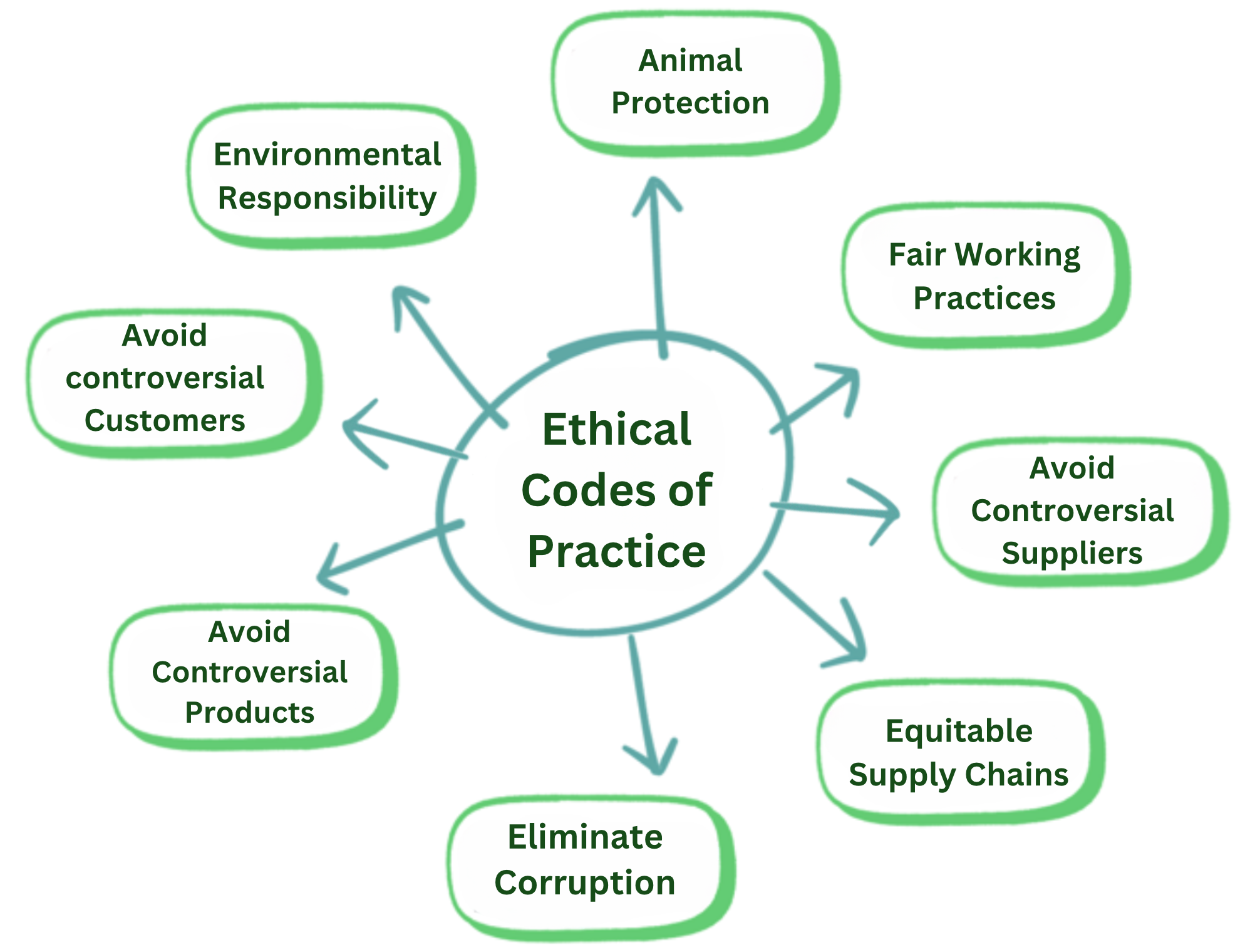Syllabus Edition
First teaching 2018
Last exams
Ethical Issues to Consider (Cambridge (CIE) O Level Business Studies): Revision Note
Exam code: 7115
Business ethics
Ethics relates to the rights or wrongs of making a business decision
Some businesses have an ethical code of practice which informs decision-making and may set out how they behave
Ethical codes of practice

Ethical codes of practice commonly cover how businesses
Behave in an environmentally responsible way (for example, using recycled materials in packaging)
Avoid negative impacts on animals (e.g animal testing)
Adopt fair working practices (e.g. paying a real living wage)
Implement robust and equitable supply chains (e.g. using sustainably-sourced raw materials in production)
Take steps to eliminate corruption (e.g. ensuring appropriate tax is paid in the countries in which the business operates)
Avoid controversial products or take steps to minimise their impact or access to them (e.g. having strict verification procedures in place prior to cosmetic surgery procedures being carried out)
Break links with questionable suppliers or customers (e.g. cancelling a supply contract with a supplier that uses child labour)
Businesses that choose to adopt ethical principles can attract long-term loyalty from employees and customers and may find that their approach provides a useful competitive advantage
Taking an ethical approach costs more and may reduce the overall level of profits, especially if the business is not able to raise their prices to compensate
Examples of current ethical concerns
The gender pay gap | Minimum wages | Responsible sourcing |
|---|---|---|
|
|
|
Responding to ethical issues
The positive reputation gained from behaving ethically can increase awareness of a business and may be used in promotional campaigns, which should lead to increased sales
Long-term cost savings may be achieved by adopting more ethical practices, though implementing ethical processes can incur high short-term costs
Business responses to ethical issues
Activity | Example |
|---|---|
Sustainable sourcing of raw materials and components |
|
Responsible marketing |
|
Protecting the environment |
|
Responsible customer service |
|
Examiner Tips and Tricks
There is rarely a 'right or wrong' answer when answering questions about ethical issues
You should try to weigh up the views of groups with different opinions; considering different stakeholder groups is a useful way to structure this. Your recommendations should focus on the impact of making a particular decision rather than whether it is right or wrong

Unlock more, it's free!
Did this page help you?